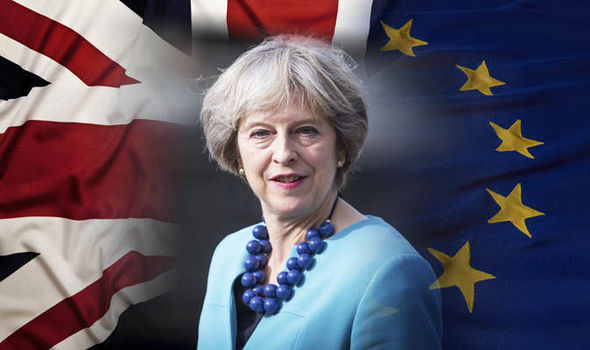Left Voice’s second issue, “Women on the Front Lines”, is now available for purchase. For every magazine sold, we are donating $1 to a worker controlled factory in Argentina.
The June 8th UK general elections were called by Prime Minister Theresa May of the Conservative Party with the aim of further strengthening her government – which already had an absolute majority – in the Brexit negotiations. “Brexit means Brexit,” the prime minister repeated over and over again, asserting that it was better to have “no agreement” with the European Union (EU), rather than “a bad one.” She saught a mandate to negotiate a hard Brexit, leaving the EU with or without a deal on key issues such as the free movement of people, leaving the EU single market etc.
Polls leading up to the election favored May, but what seemed an assured victory vanished in a few days. The Labour Party turned the elections on its head and delivered a strong defeat to the conservatives, who lost their absolute majority. Corbyn was the winner of the last elections, attracting the support of large sectors of youth and workers, behind a reformist program that promises to end austerity, recover public services for “the people” and stop governing for the establishment elite. The elections represented a steep fall for Theresa May, who stood at 54% at the time when she called the election, compared with 15% for Corbyn. After the huge upset in which the Tories lost the absolute majority in the Parliament, the Corbyn phenomena just kept growing.
You may be interested in The Significance of Corbyn’s Rise in the British Elections
The fire at the Grenfell Tower in London, fueled the discontent and anger of sectors of the population who blame the government for the lack of fire saftey and the lack of company control. More and more people blame the budget cuts, austerity and other government policies for the fire. The government’s slow response fueled public outrage, leading more people to look to Corbyn, who suggested housing the victims of the fire in the empty apartments of the wealthy in the surrounding area.
In a poll released Friday, Corbyn was the leading candidate for the next Prime Minister of England. Buisness Insider reports that Jeremy Corbyn leads the polls for prime minister, with 35%, beating Theresa May who polls at 34%. Currently, in all age categories under 50, Corbyn is polling well ahead of Theresa May.
Theresa May, with high unfavorability ratings and the recent election upset, arrived to the Brexit negotiations, which began on June 19, in a weakened position.In addition to the recent turns in UK politics, Macron’s triumph in France served as a symbol of hope and strength for the EU. The election of the pro-EU candidate in France renewed optimism that the Franco-German axis could revive the European project.
Another important element in the push for EU consolidation has been the growing tension between the United States and Europe. Germany in particular has a pattern of watching out for its “own interests” and distancing itself from the United States and the United Kingdom. A few weeks ago, Merkel stated “Europeans have to take fate into our hands.” She went on to say, “The times in which we could depend completely on others, to some extent are over.”
Will Theresa May soften the Brexit?
The British election results meant a potential turn towards a softer Brexit. The Labour Party, liberals and Scottish nationalists are not the only ones seeking a negotiated soft Brexit that maintains relations with the EU. Within the conservative party, support for a soft Brexit has also been strengthened due to strong post-election controversy.
The clearest demonstration of this are Theresa May’s statements at EU negotiations in Brussels on Thursday, where she assured the public that the United Kingdom will recognize “equal rights” for European citizens who have more than five years of residence in the country. In return, the UK expects to receive a similar offer of treatment for British citizens residing in countries of the European Union, which face great uncertainty about their legal status.
In The Gaurdian, Timothy Garton Ash argues that although the only certainty is uncertainty, the UK is most likely to end up negotiating an “intermediate” status within the EU– a “second-class membership,” or a variant of the Norwegian model. Norway participates in the European Economic Area (EEA) and some institutions, without being a member of the EU.
Since the prime minister’s permanence at the head of the government throughout the negotiations is in serious doubt, all possibilities remain open.
The Brexit negotiations began on Monday June 21 and they will finish before March 29, 2019. There is still too much time to forecast the mood of the British public with regards to Brexit and which government it believes can effectively carry forward the separation.
There are still many issues under discussion: the status of EU citizens who live on either side of the Channel of La Mancha, leaving the EU single market, trade relations and the border of Northern Ireland.
Another problem is that the British economy has been hit with a major devaluation of the Pound. This affected domestic consumption and domestic market enterprises, while benefiting exports. However, several analysts predict that the larger impacts of inflation and consumption are still to be seen, which may aggravate the dissatisfaction of large sectors of the population with the government.
The succession of attacks on British soil in recent months sharpens the polarization of the political climate, generating a greater rejection of the government and its interventionist policies. The violent incidents reveal a trend contrary to “common sense” notion that the Brexit triumph guaranteed greater “internal security,” as claimed by its defenders a year ago.
The Theresa May government is in a very deep crisis. Behind the discussions between the sectors of the establishment is the profound discontent of the working class and youth in the UK with austerity plans and globalization.











